Fishermen begin legal campaign over dead shellfish
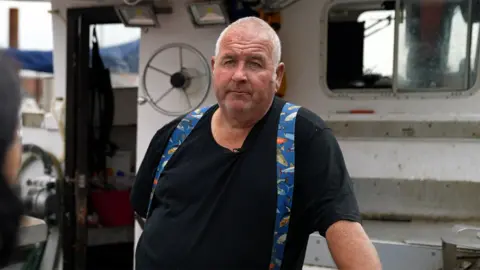 BBC
BBCFishermen in north-east England have begun a legal campaign over the deaths of thousands of shellfish last year.
A report suggested algae was to blame - but the fishermen fear the deaths were linked to the release of the chemical pyridine as a result of dredging in the River Tees in October.
Smaller catches are threatening their livelihoods, they say.
And they have instructed lawyers to look at challenging the Department for Environment Food and Rural Affairs.
Between October and December, thousands of dead shellfish washed up, from Seaton Carew, Durham, to Whitby, North Yorkshire.
Paul Widdowfield, who has fished all his adult life in the waters by Hartlepool, said his daily catches could now be 50 times smaller than three years ago, losing him £1,000 a day.
"There's absolutely nothing," he said. "It's not normal at all."
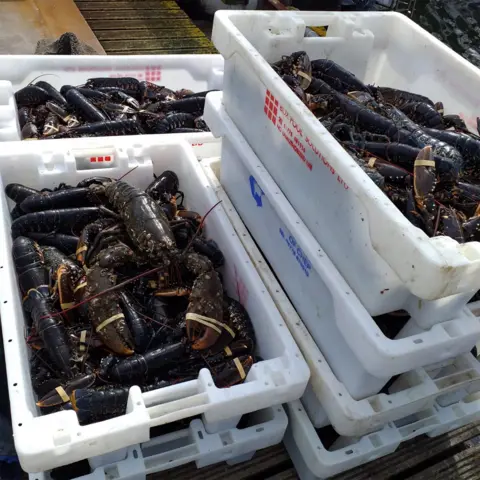 Jamie Widdowfield
Jamie Widdowfield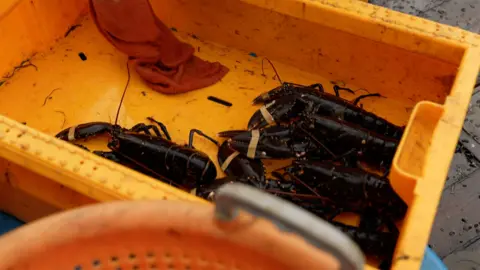
Stan Rennie, whose family has been fishing for 500 years, said: "It means absolutely everything to me. It's all I've ever done.
"Now, we're facing hardship because of the catches. The boat will probably have to go by the end of the year."
It was an "environmental disaster", Mr Widdowfield and Mr Rennie said.
On each trip, they used to throw about 80 pregnant lobsters back into the sea - but in the past three weeks, they have seen only two.
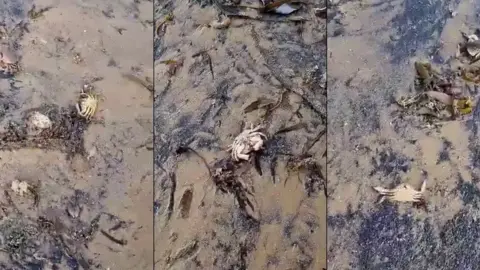 Carl Clyne
Carl ClyneWhitby fisherman James Noble summed up how many of the community felt.
"If it was just about money, I could stack shelves for a living - but this is also about the environment. It belongs to everybody."
As well as considering a judicial review, the fishermen want the mayoral authority to test extensively for pyridine before new dredging work, for an offshore wind development, begins in September.
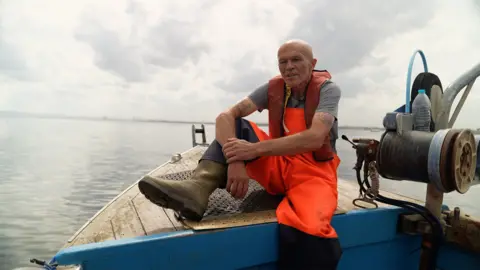
But Tees Valley Mayor Ben Houchen said: "Let's just be very, very clear. The scientific investigation that was undertaken on behalf of the Department of Food, Environment and Rural Affairs said that dredging was not the cause and therefore things like pyridine could not have been the cause of the die-off last year."
Testing in the Tees was continuing and he had asked the government for financial support for the fishing community.
"What we've done is met not just the scientific standard to be able to start to dredge but we've gone well beyond that, at the request of the Environment Agency and the Marine Maritime Organisation," Mr Houchen added.
Leading the campaign on behalf of hundreds of fishermen, marine biologist Joe Redfern said legal action could require agencies such as the Department for Environment Food and Rural Affairs (Defra) and the Centre for Environment, Fisheries and Aquaculture Science (Cefas) to explain how their conclusions were reached.
A court could then decide whether their investigations had been conducted in a lawful and thorough manner.
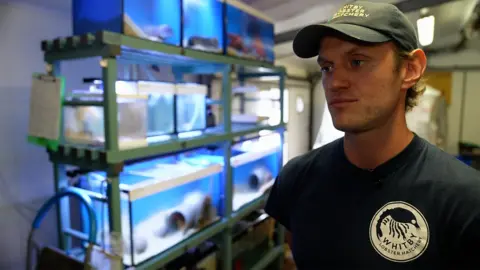
"Government scientists carried out extensive testing for chemicals and other pollutants, including pyridine, but concluded a naturally occurring algal bloom was the most likely cause," an official said.
"It's a complex area of research - and we will continue to work with universities and other experts to understand it better."
